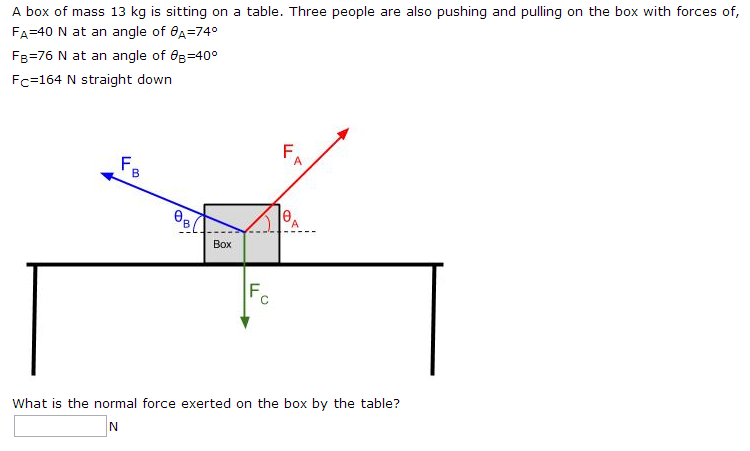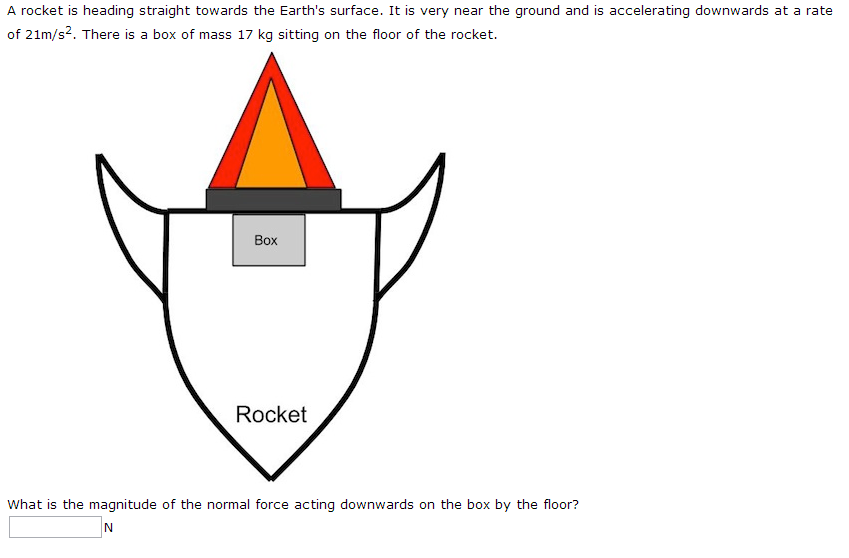We haven't been using the Khan videos as much for this section on Newton's Laws and Forces. I feel like the progression of videos and sequencing of material given in the Khan videos for this chapter are inefficient in helping my students attain the level of mastery that I am looking for. Similarly, the Braingenie problem sets have had errors lately, so I've mostly been relying on having the students work through the progression of problems that I programmed over the summer.
The progression of problems I developed has students first fully understand how to use Newton's Second Law when all forces are given. It takes them through many different scenarios, and always builds on the previous problem by adding difficulty or a single new element at a time. Then, and only then do we move on to talking about particular forces (Normal force, tension, friction, inclines) and how to analyze them one at a time. Basically I'm delineating between the different micro-skills the students need in order to solve difficult force problems, and having them master each skill in a logical progression before trying to put them all together.
If you subscribe to the philosophy that students actually do the majority of their learning when they are solving problems and answering questions on their own, then it makes sense to spend the most time crafting the best possible sequence of questions and problems for them to do. It seems like many educators and textbook publishers focus 90% of their effort on the delivery of the material, and 10% on the problems sets and questions to ask. It always struck me as weird that the chapter text portion of a physics textbook follows a nice organized logical progression where each section builds off the previous one, but the problems sets for the most part have no logical progression. The problem sets are organized into sections like "Tension", but one problem is hard then the next is easy, one problem requires this skill, then the next problem requires a different skill. Just cause all problems are under the heading of "Tension", does not mean that there is only one skill to master.
Students seem to really appreciate using these progressions of problems since they can see themselves making progress instead of feeling like every new problem requires a whole new set of skills that makes them start all over again. Once students have made it to the end of all the incremental progressions, I give them a set of random problems in no logical order that require all skills in random ways to make sure they can apply what they know even when it might not be obvious what to do.
By doing using these progressions of problems, my students this year have shown a level of mastery of this material that I didn't think was possible. My students are now quickly able to handle complex problems that students from previous years would have never dared to even try.
Here's a sampling of a few problems from the various progression sets that would have made students from previous years freeze up and possibly break down in tears, but most of my students now handle with ease,




No comments:
Post a Comment